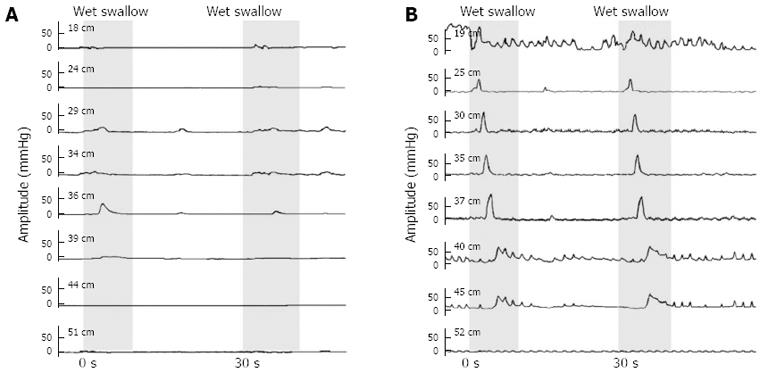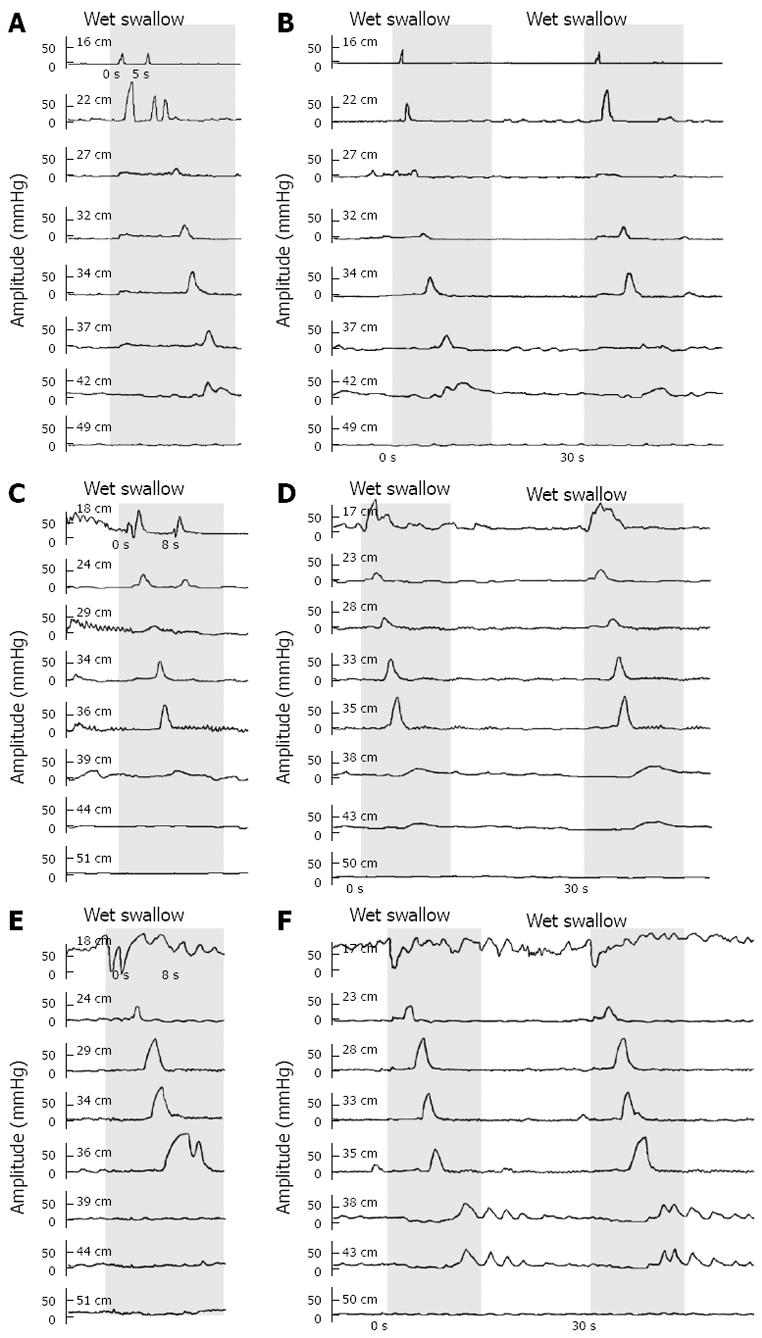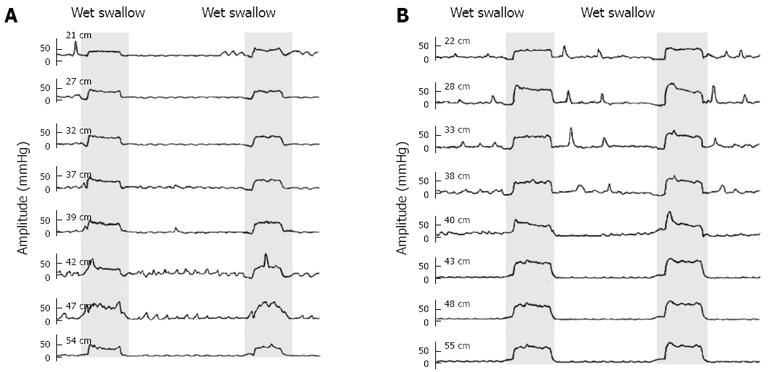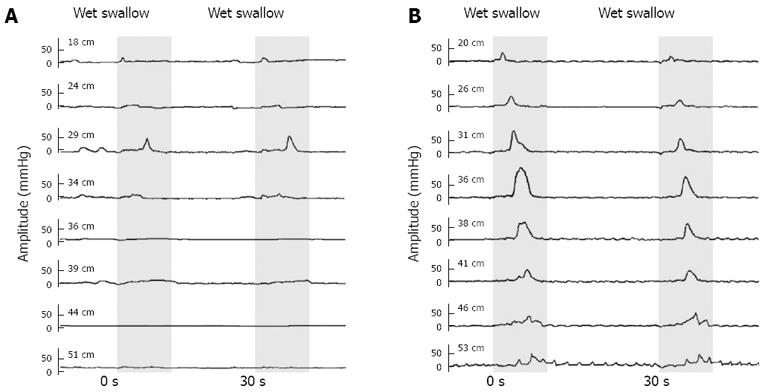Copyright
©2013 Baishideng Publishing Group Co.
World J Gastroenterol. Apr 14, 2013; 19(14): 2270-2277
Published online Apr 14, 2013. doi: 10.3748/wjg.v19.i14.2270
Published online Apr 14, 2013. doi: 10.3748/wjg.v19.i14.2270
Figure 1 Manometric tracings of a fast-eating ineffective esophageal motility patient (A) and a healthy control (B).
The numbers (in cm) on the left indicate the distances from the nose to each side-hole on the catheter.
Figure 2 Manometric tracings of swallowing at an interval < 10 s (A, C, E) in comparison with swallowing at the interval of 30 s (B, D, F).
The numbers (in cm) on the left indicate the distances from the nose to each side-hole on the catheter. In an ineffective esophageal motility patient who was habitually rapidly eating (A, B), only one peristaltic contraction appeared in response to the second of a pair of wet swallows at the interval of 5 s (A). Similar finding was observed in one healthy control (E, F) whose two wet swallows were almost continuous (E). In another control (C, D), peristalsis was only seen in response to the first of a pair of wet swallows at the interval of 8 s (C).
Figure 3 Effects of the Valsalva maneuver on the esophageal manometric tracings in a patient with ineffective esophageal motility (A) and a healthy control (B).
The numbers (in cm) on the left indicate the distances from the nose to each side-hole on the catheter.
Figure 4 Manometric tracings of a fast-eating non-cardiac chest pain patient diagnosed with ineffective esophageal motility before (A) and after (B) 6-mo gum-chewing exercise.
The numbers (in cm) on the left indicate the distances from the nose to each side-hole on the catheter.
- Citation: Li KL, Chen JH, Zhang Q, Huizinga JD, Vadakepeedika S, Zhao YR, Yu WZ, Luo HS. Habitual rapid food intake and ineffective esophageal motility. World J Gastroenterol 2013; 19(14): 2270-2277
- URL: https://www.wjgnet.com/1007-9327/full/v19/i14/2270.htm
- DOI: https://dx.doi.org/10.3748/wjg.v19.i14.2270












